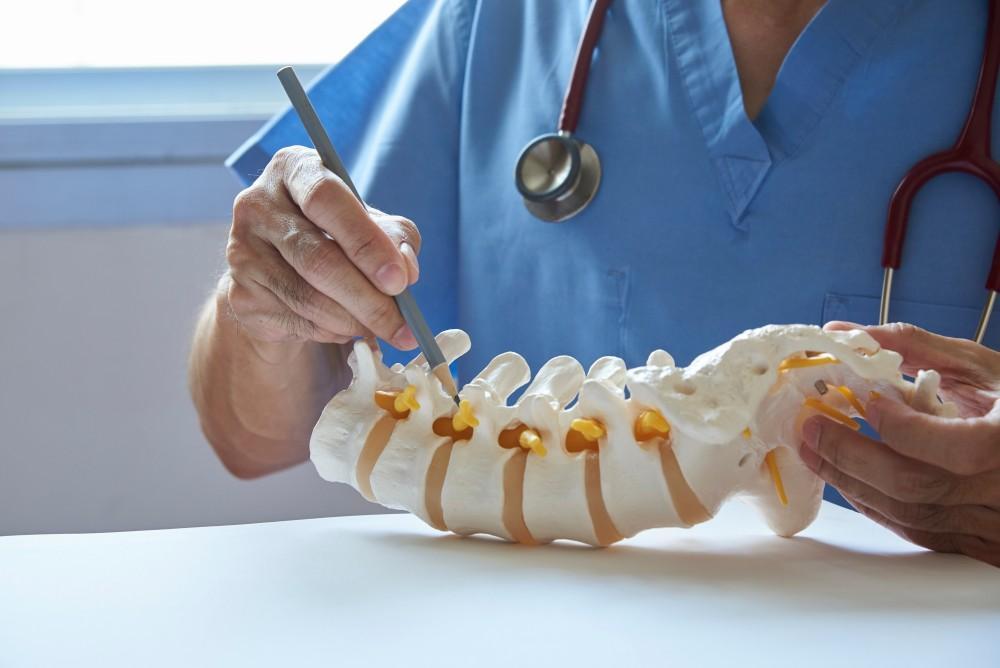
I Have a Pinched Nerve in My Neck. Now What?

Pinched nerves, aka impinged or compressed nerves, conjure up images of screaming pain and loss of function. That’s an apt description, as pinching occurs when a structure in or near the spinal column applies too much pressure on a nerve or nerve root, sending pain, weakness, numbness, and tingling along the length of the nerve into an extremity, such as the arm and hand. This perceived motion is called radiculopathy.
Pinched nerves are also very common, with 85 out of 100,000 US adults developing the condition every year, mostly in the lumbar (lower back) and cervical (neck) regions of the spine, as they see the most action. And they’re most common in men and women over 50 because of age-related spinal degeneration.
At Vertrae®, board-certified neurosurgeon Dr. Kamal R. Woods and his team understand how uncomfortable a pinched nerve can be, which is why they offer several treatments to address it effectively. If you have a pinched nerve in your neck, what do you do?
Causes of cervical pinched nerves
Cervical radiculopathy usually stems from age-related degenerative changes that occur in the spine, or from an injury that causes a disc to bulge, or herniate, into the spinal canal space where the nerve roots are located.
Degenerative changes
As spinal discs age, they lose height and water content, becoming stiffer and bulging into the canal space. The collapse of the disc spaces and loss of disk height make the vertebrae move closer together. The body responds by forming more bone — called bone spurs — around the disc to strengthen it.
Unfortunately, the bone spurs contribute to the stiffening of the spine; grate on other bones, causing inflammation; and narrow the foramen where the nerve roots exit the spinal canal, pinching the root in the process. The pain you feel may come from both the pinched nerve root and the inflammation.
Degenerative disc changes are often called arthritis or spondylosis, but they’re perfectly normal, and everyone develops them to some degree. Interestingly, nearly half of all people around age 50 and older have worn discs and pinched nerves but don’t experience painful symptoms. It’s not well understood why some patients develop symptoms and others don’t.
Herniated disk
An intervertebral disc has a hard outer ring (annulus) and a jelly-like center (nucleus). With aging, or from an injury, the annulus may crack, allowing the nucleus to squeeze all the way through. The extruded inner material enters the spinal canal, putting pressure on the nerve root and causing pain and weakness in the area the nerve supplies.
Signs of a pinched nerve in your neck
A pinched nerve produces the same signs and symptoms no matter where in the body it’s located. These include:
- Pain: sharp, aching, or burning
- Pain that travels along the nerve’s path
- Numbness in the body part the nerve supplies
- Muscle weakness in the body part the nerve supplies
- The feeling an extremity has “fallen asleep”
- “Pins and needles” (paresthesia) that travels
Dr. Woods uses these symptoms, in combination with a physical exam and review of your medical history, to help diagnose your condition. He may also order additional tests, such as a nerve conduction study, an MRI scan, or an ultrasound, to view the “big picture.”
Treating a pinched nerve in your neck
Most cases of pinched nerves resolve on their own within about 4-6 weeks, given some rest, anti-inflammatories, and icing, but it really depends on the underlying problem. If rest and over-the-counter ibuprofen or naproxen don’t help within a few days, come into Vertrae® for an evaluation. With an early diagnosis and targeted treatment to relieve the source of the compression, your nerve’s function will return to normal.
However, if you choose to wait it out and see if the pain will resolve on its own, it can lead to the condition becoming chronic, and the nerve damage may become permanent. That’s why involving a doctor in the process is usually best.
Dr. Woods always starts with conservative treatments. He may recommend physical therapy (PT), which uses targeted stretches and exercise to relieve the discomfort. If you’re in too much pain to do the exercises, he might suggest steroid injections to calm the inflammation and relieve the pain enough to allow you to take advantage of PT. However, if these don’t prove effective, he has extensive experience performing many different types of spinal surgeries, including minimally invasive and robotic options. He discusses all your treatment options with you at your evaluation.
To schedule an evaluation with Dr. Woods, call our office at 844-255-2225, or book online with us today.
You Might Also Enjoy...


4 Benefits of Outpatient Spine Surgery

Am I a Candidate for Kyphoplasty?

Pulled Muscle vs. Pinched Nerve: What's the Difference?

4 Subtle Signs of Sciatica

